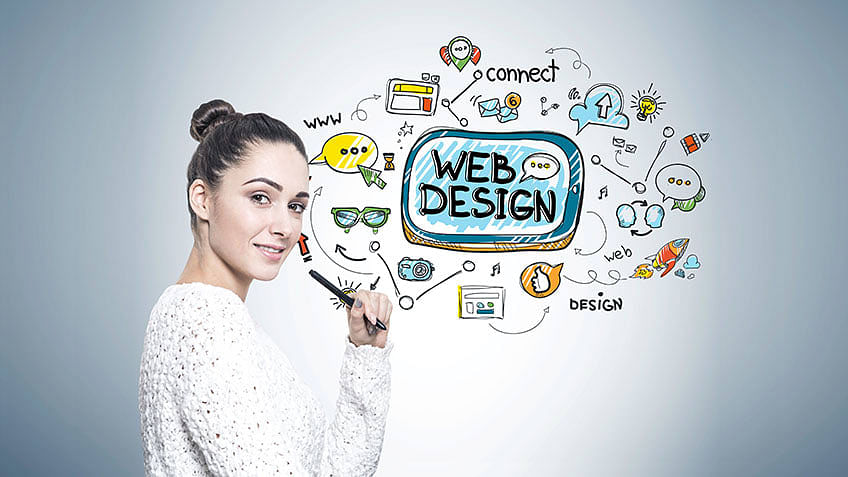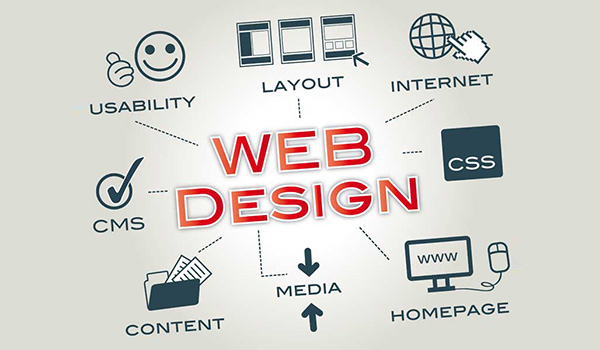Aligned Position Web Design: Building Responsive, Mobile-Friendly Websites for Modern Users
Aligned Position Web Design: Building Responsive, Mobile-Friendly Websites for Modern Users
Blog Article
The Most Effective Sorts Of Web Layout to Boost Customer Experience and Engagement
In the ever-evolving landscape of electronic interaction, the efficiency of Web design significantly affects customer experience and engagement. Various layout methods, such as minimalist, responsive, and interactive designs, each deal distinct advantages that can cater to diverse customer demands.
Minimalist Web Design
As electronic landscapes end up being progressively cluttered, minimal Web layout has actually become an effective approach to boosting customer experience. This style approach focuses on simplicity, concentrating on vital elements while getting rid of unnecessary interruptions. By using enough white space, uncomplicated navigation, and a minimal color combination, minimalist layout promotes clarity and routes user focus to crucial material.
The core concept of minimalist website design is to create a smooth communication for customers. By reducing cognitive load, individuals can quickly comprehend information without really feeling bewildered. This straight approach not just boosts use however additionally motivates interaction, as site visitors are more probable to check out a website that is simple and visually appealing to navigate.
Furthermore, minimalist layout usually stresses typography and images, using these aspects strategically to share messages effectively. This concentrate on vital elements can enhance brand name identity and develop a remarkable individual experience. In essence, minimal Web design is not just a fad; it is a thoughtful method that identifies the significance of user-centered layout. By removing nonessential components, developers can create an extra appealing, efficient, and delightful Web experience for all users.
Receptive Website Design
In today's varied digital setting, receptive Web design has actually come to be crucial for creating a smooth customer experience throughout a wide variety of devices. As users accessibility websites on mobile phones, tablet computers, desktop computers, and laptop computers, the capability of a web site to adapt its format and material to different screen dimensions and resolutions is essential.
Responsive website design uses adaptable grids, pictures, and CSS media questions to guarantee that Web content is provided efficiently, no matter the gadget made use of. This approach not just enhances the aesthetic appeal of a web site but also considerably improves usability. Users are most likely to involve with a site that uses a consistent experience, as it gets rid of the aggravation of having to zoom in or scroll exceedingly.
By taking on responsive layout, businesses can enhance their presence and get to a wider target market. In recap, receptive Web layout is an essential practice that improves individual experience, involvement, and overall complete satisfaction.
Interactive Web Style
Receptive Web layout lays the groundwork for improving customer experience, but interactive Web design takes this a step additionally by involving users in a much more dynamic way - Aligned Position Web Design. By incorporating components such as animations, clickable prototypes, and real-time responses, interactive website design captivates individuals, attracting them into a richer surfing experience
This method not just fosters involvement yet additionally urges customers to explore material actively instead of passively consuming it. Methods such as gamification, where individuals make incentives for finishing tasks, can considerably improve the moment spent on a site and boost general complete satisfaction. Moreover, interactive attributes can streamline complicated information, making it a lot more digestible and satisfying.

Incorporating interactive layout components can likewise lead to greater conversion prices, as customers are most likely to engage with a site that proactively includes them. Aligned Position Web Design. Ultimately, interactive Web layout changes individual experiences right into remarkable trips, guaranteeing that visitors return time and again
Apartment Design
Defined by its minimalistic technique, level layout stresses simpleness and capability, removing unnecessary elements and focusing on vital functions. This design ideology focuses on use, making certain that individuals can browse user interfaces easily and efficiency. By utilizing a clean visual, level layout gets rid of the mess often found in more luxuriant styles, consequently improving customer focus on content and functionality.
The hallmark of level style depends on its use of bold colors, simple typography, and geometric shapes. These elements contribute to an aesthetically enticing user interface that is both modern-day and friendly. Furthermore, level style cultivates a sense of clearness, enabling individuals to discern important actions and info without distraction.
Moreover, level design is specifically effective in responsive website design, as its simplicity translates well across numerous devices and display sizes. The lack of complex appearances and gradients decreases loading times, which is crucial for keeping customer engagement. As electronic landscapes remain to progress, level layout remains a pertinent choice for developing user-friendly web sites that enhance overall experience. By concentrating on important features, level layout not just satisfies individual requirements however additionally encourages smooth communication, making it an important component of effective Web style approaches.
Adaptive Web Design
Flexible Web style tailors the customer experience by developing multiple dealt with formats tailored to different display dimensions and devices. Unlike receptive design, which his comment is here fluidly adjusts a solitary format, adaptive design utilizes distinct layouts for specific breakpoints, making certain optimal presentation on different systems. This strategy enables developers to concentrate on the unique features of each tool, boosting functionality by delivering precisely what individuals need based upon their context.
Among the primary advantages of adaptive website design is its ability to maximize load times and performance. By offering tailored web content and images that fit the individual's gadget, websites can lessen information usage and enhance loading rates. This is particularly valuable for users with slower connections or linked here limited data strategies.

In addition, flexible layout assists in an extra regular and regulated branding experience. Since developers create multiple formats, they can ensure that the aesthetic elements line up with the brand name's identification throughout various systems - Aligned Position Web Design. This causes a natural user experience, improving interaction and promoting user retention
Conclusion
Finally, the combination of minimalist, responsive, and interactive Web design concepts considerably boosts customer experience and interaction. Minimal design cultivates clearness and emphasis, while responsive design makes sure versatility across different tools, promoting accessibility. Interactive style astounds users through dynamic components, motivating expedition and customization. Jointly, these design approaches add to the creation of user-friendly environments that not only improve contentment however also drive greater conversion rates, underscoring their critical value in contemporary website design strategies.

Minimalist style fosters clearness and focus, while responsive layout guarantees adaptability throughout various gadgets, advertising availability. Collectively, these design approaches add to the creation of easy to use environments that not just enhance contentment however also drive greater conversion rates, highlighting their essential significance in modern Web design techniques.
Report this page